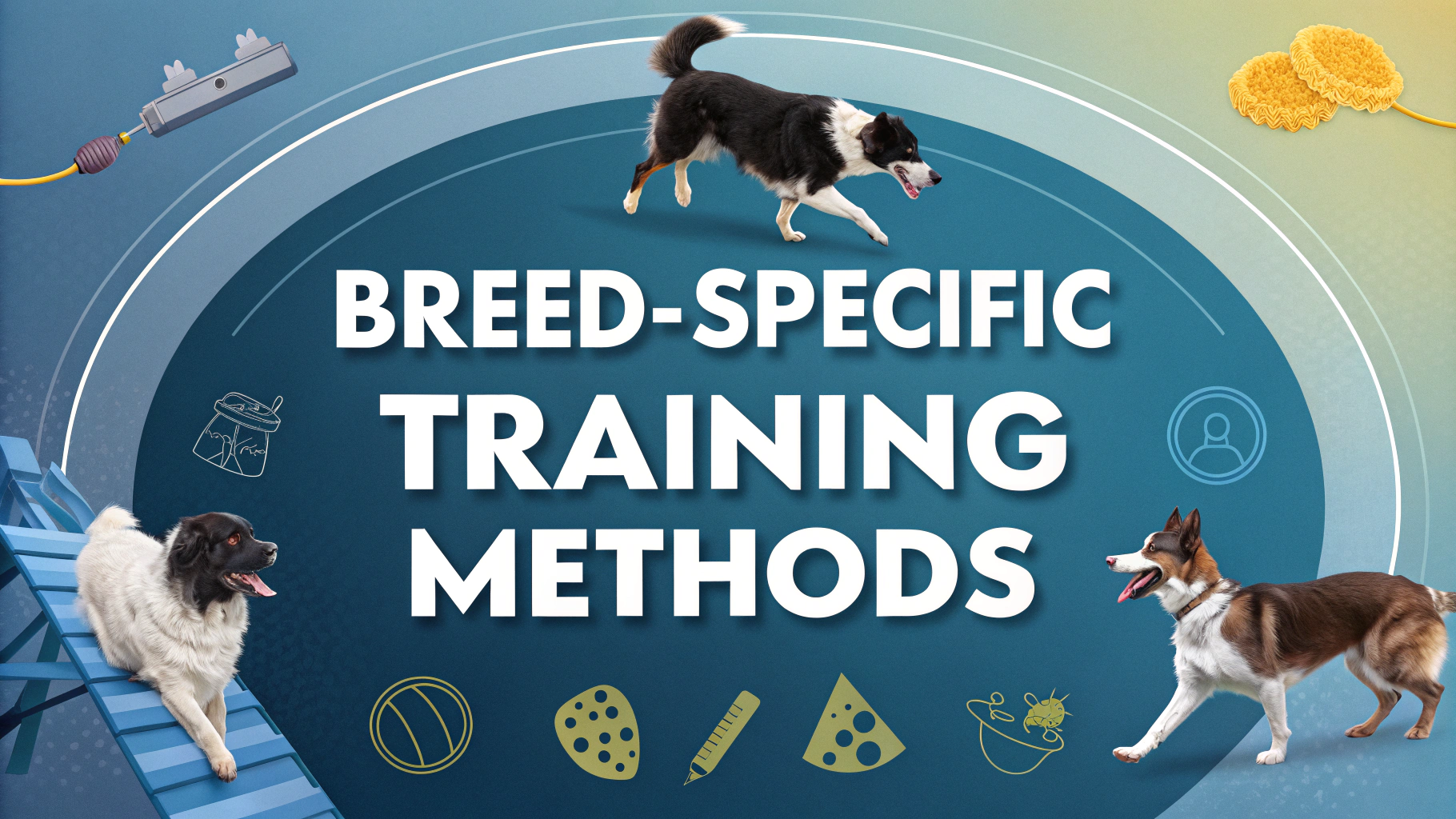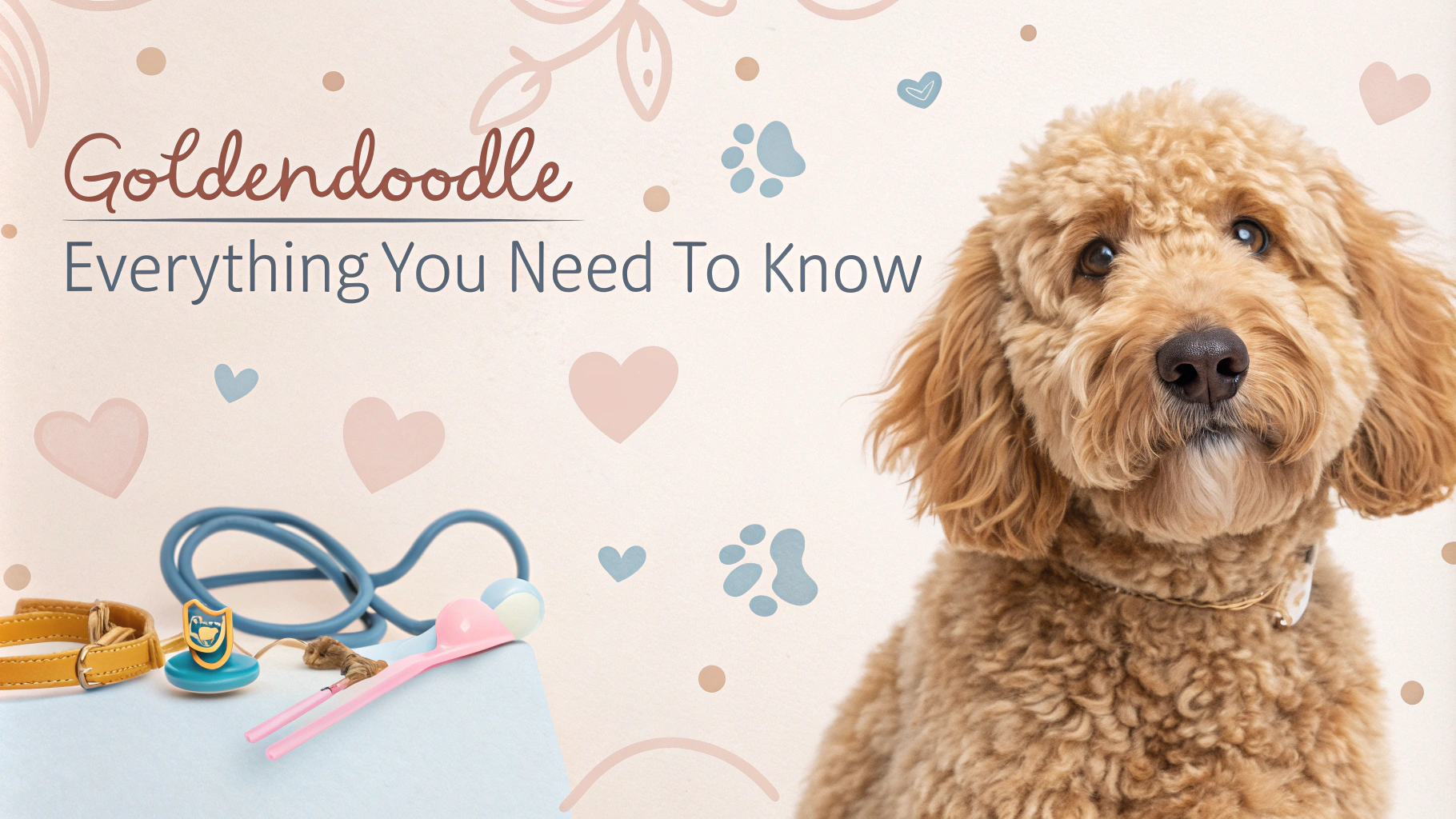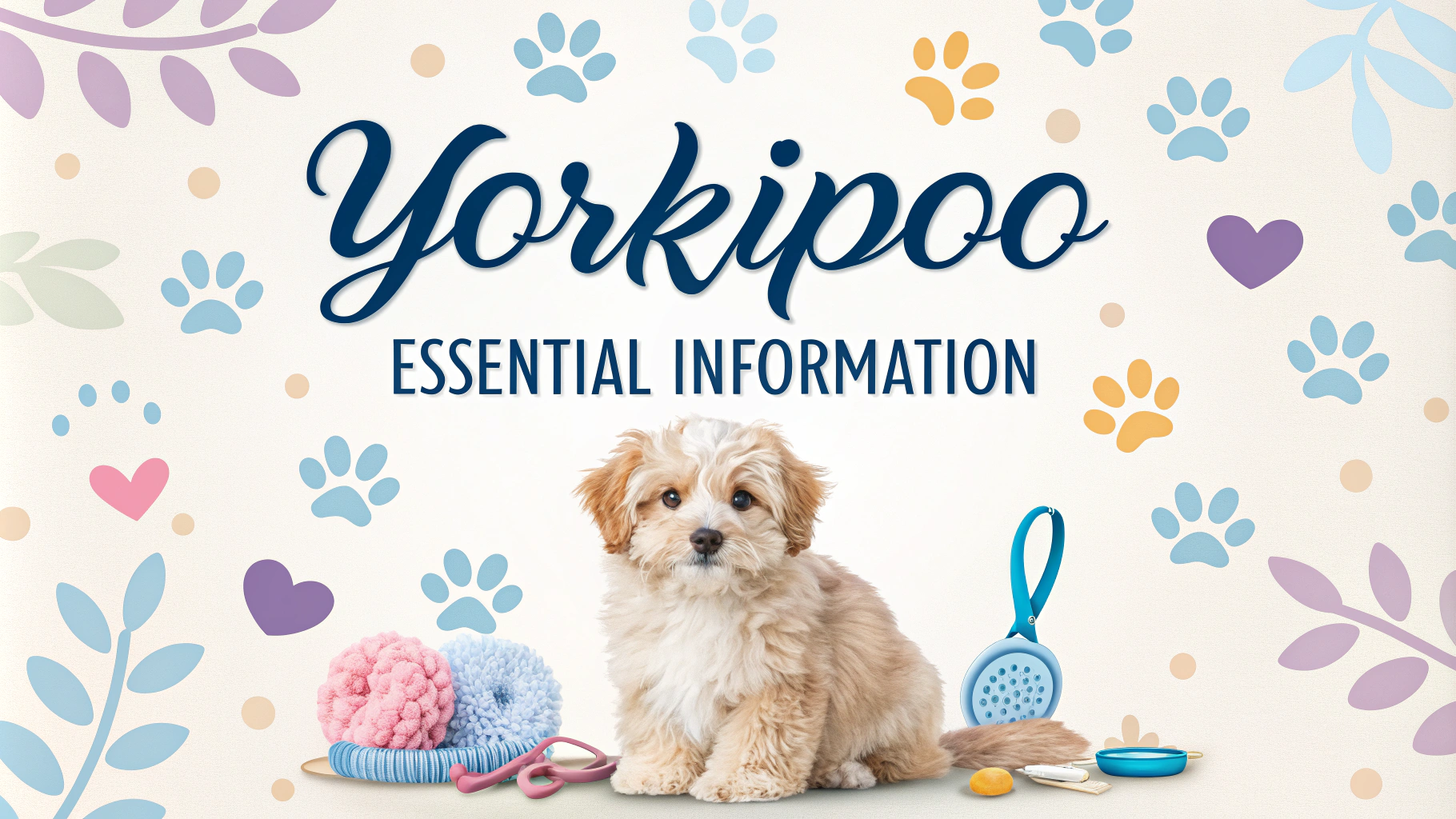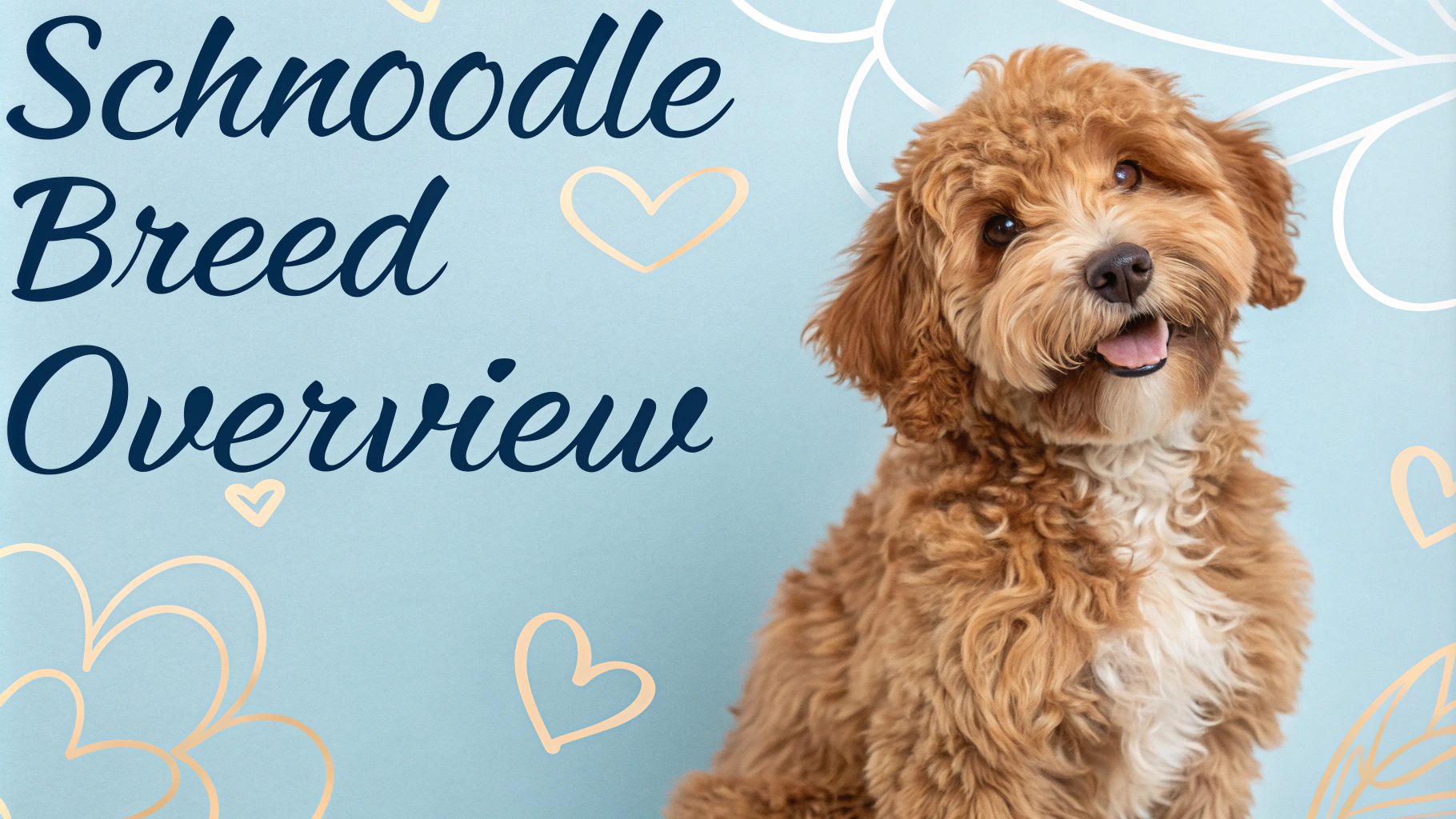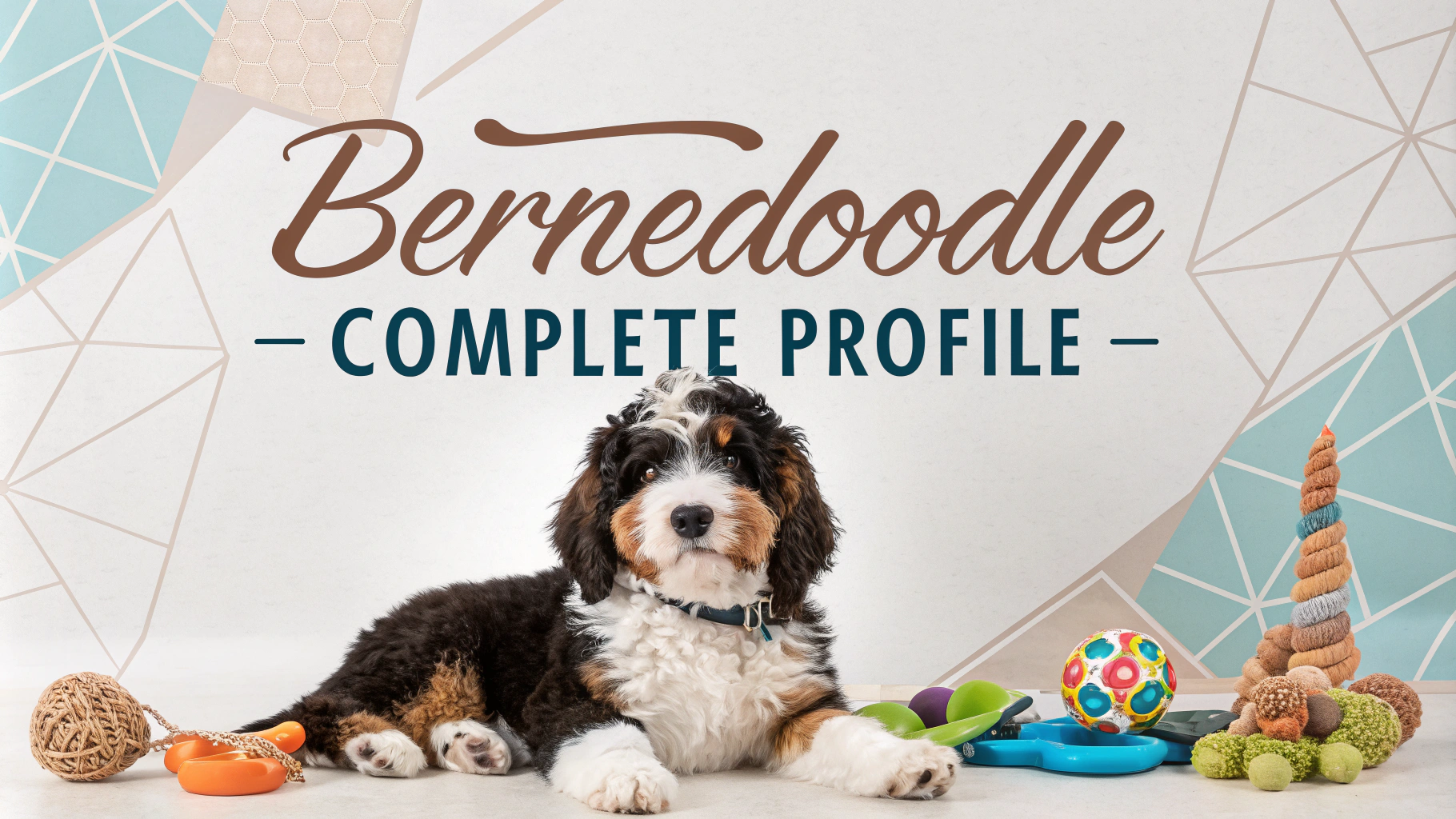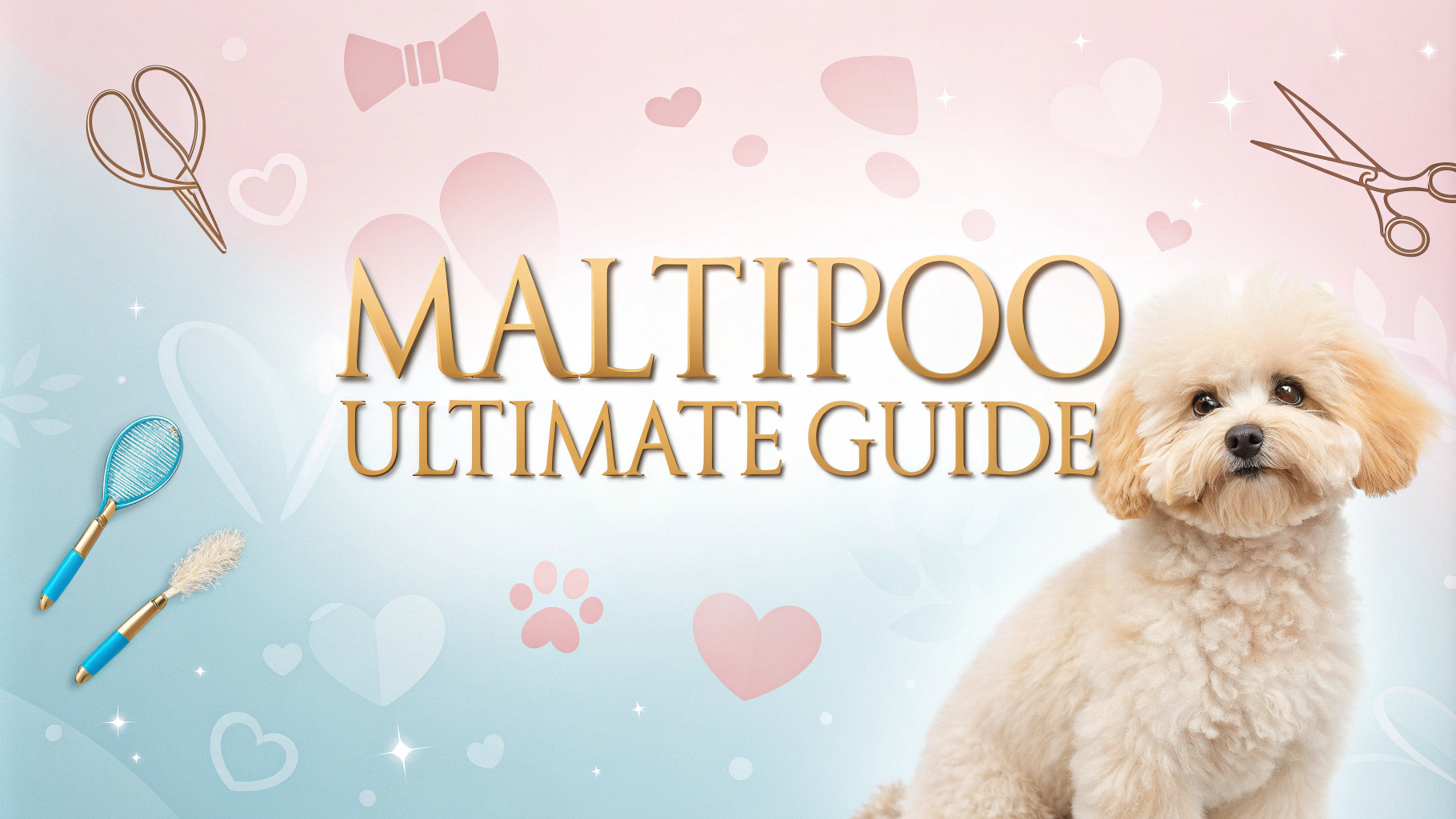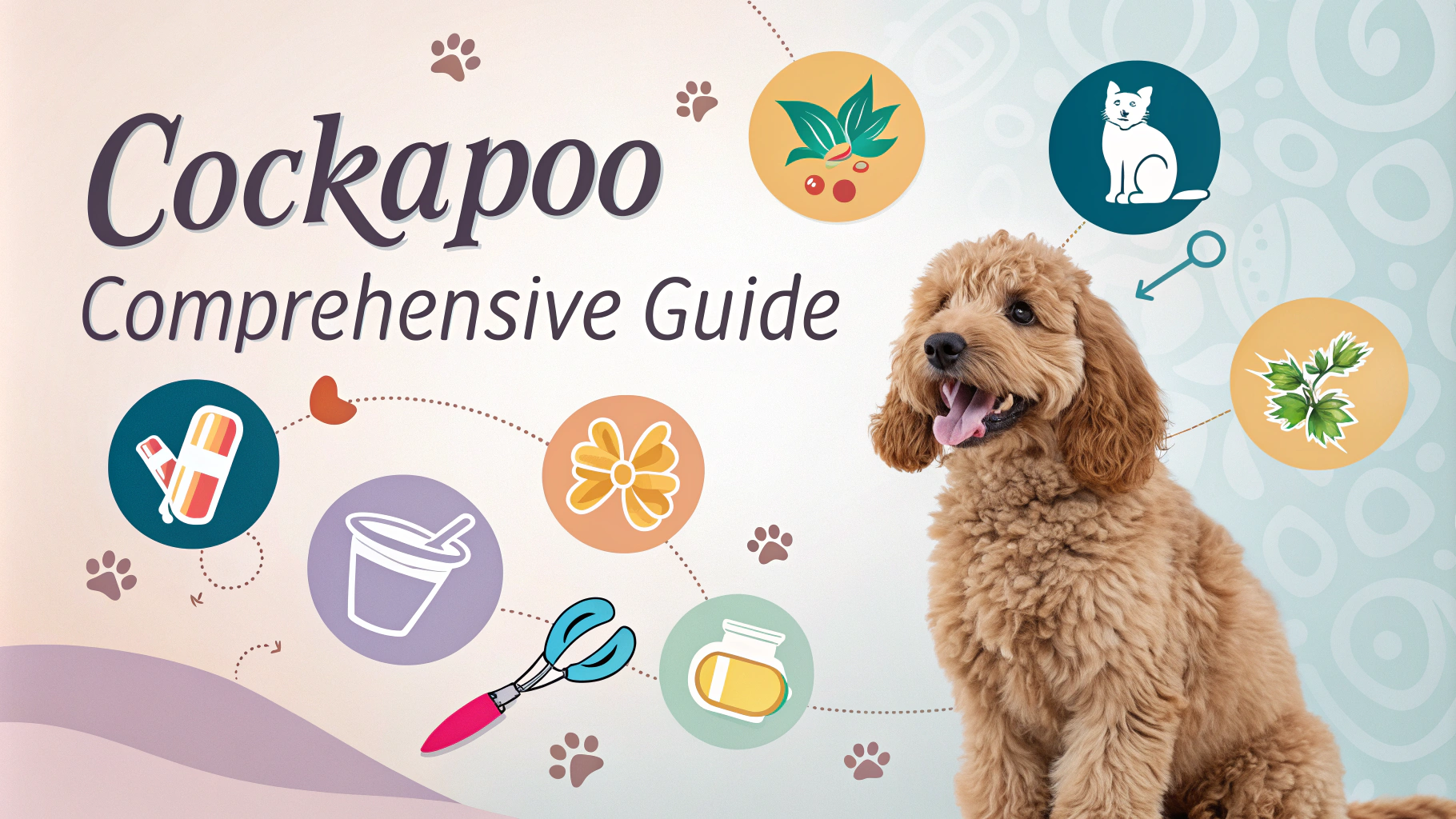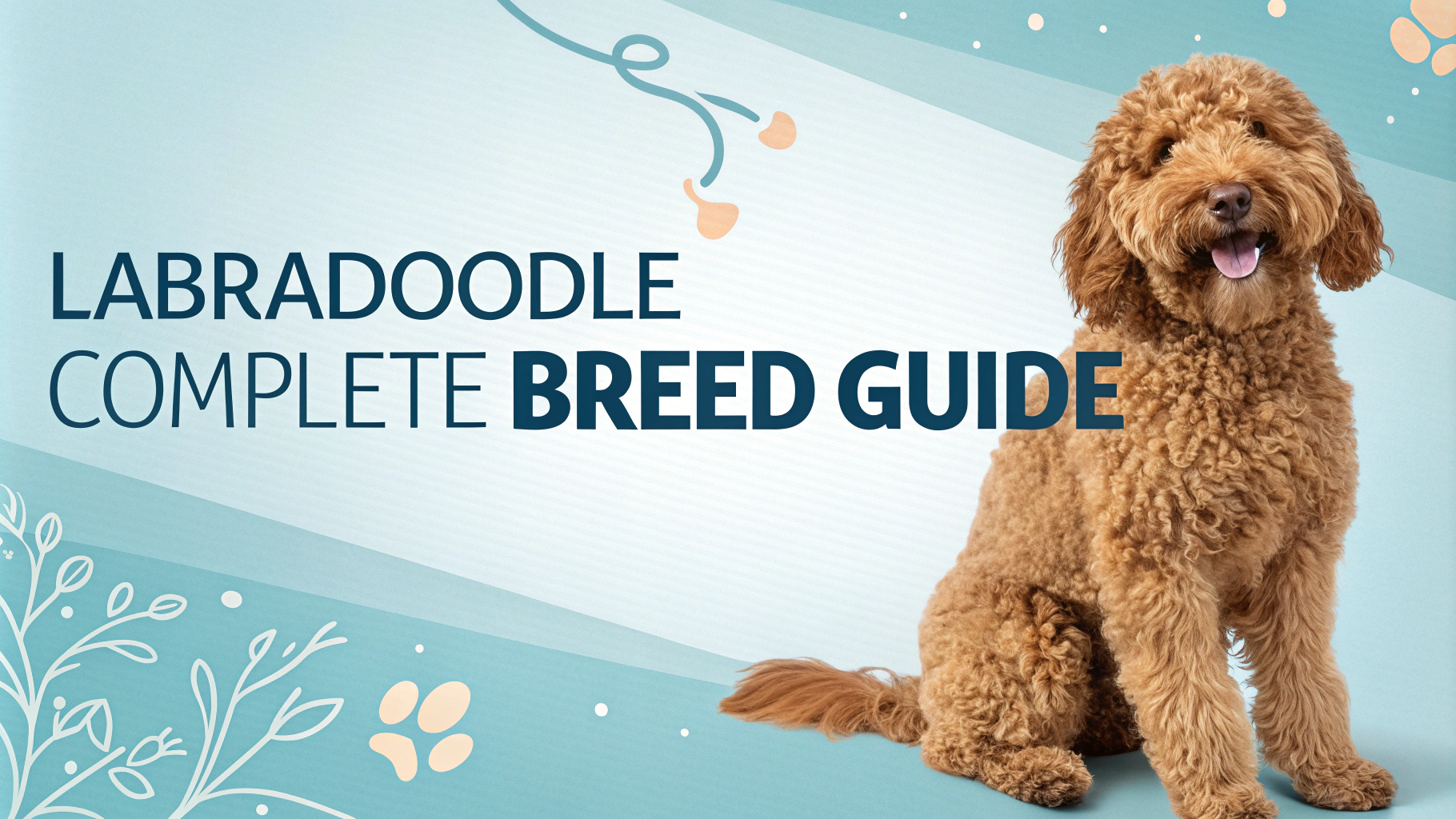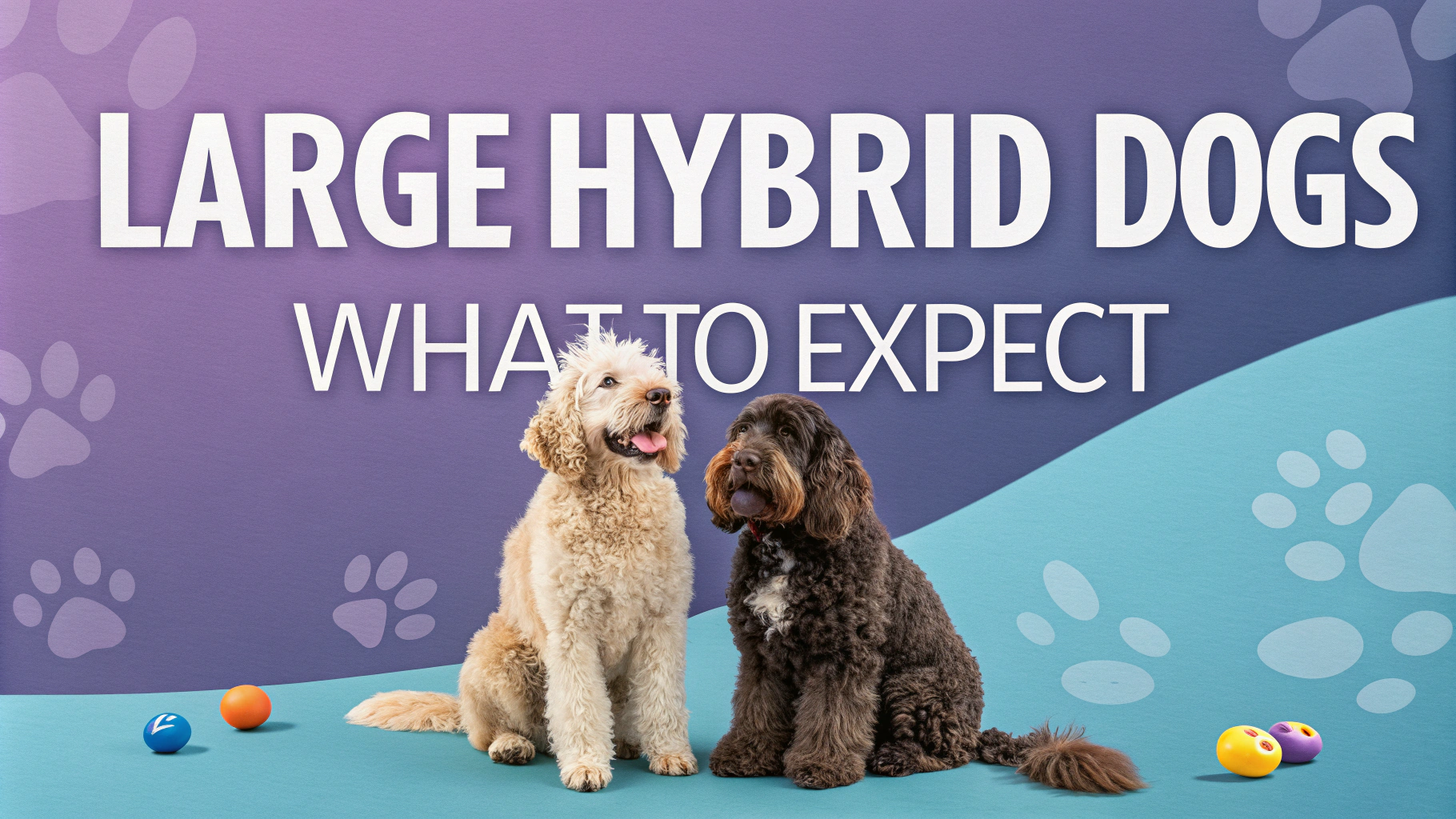Goldendoodles blend the intelligence of Poodles with the friendly nature of Golden Retrievers, creating a popular designer dog that fits many different lifestyles.
Quick Facts About Goldendoodles
- Height: 13-24 inches
- Weight: 15-90 pounds (varies by generation)
- Lifespan: 10-15 years
- Coat: Wavy to curly
- Temperament: Friendly, smart, social
Types of Goldendoodles
- F1: 50% Golden Retriever, 50% Poodle
- F1B: 25% Golden Retriever, 75% Poodle
- F2: Two F1 Goldendoodles bred together
Size Options
| Size | Height | Weight |
|---|---|---|
| Mini | 13-17 inches | 15-30 pounds |
| Medium | 17-20 inches | 30-50 pounds |
| Standard | 20-24 inches | 50-90 pounds |
Care Requirements
Goldendoodles need daily exercise, including at least 30 minutes of active play or walking.
Their coat requires brushing 2-3 times per week and professional grooming every 6-8 weeks.
Training Tips
- Start socialization early
- Use positive reinforcement methods
- Keep training sessions short (10-15 minutes)
- Focus on basic commands first
Health Considerations
Common health issues include hip dysplasia, ear infections, and eye problems.
Regular vet check-ups and genetic testing can help prevent or manage these conditions.
Cost Expectations
- Purchase price: $2,000-$5,000
- Annual medical costs: $500-$1,000
- Food and supplies: $500-$800/year
- Grooming: $50-$100 per session
Where to Find a Goldendoodle
Research reputable breeders through the Goldendoodle Association of North America.
Consider adoption through Doodle Rescue Collective Inc or local rescue organizations.
Is a Goldendoodle Right for You?
- ✓ Perfect for active families
- ✓ Good with children and other pets
- ✓ Suitable for first-time dog owners
- ✗ Requires regular grooming
- ✗ May not suit busy households with limited time for exercise
- ✗ Can be expensive to purchase and maintain
Exercise and Activity Requirements
Beyond basic daily walks, Goldendoodles thrive with varied activities:
- Fetch and ball games
- Swimming (thanks to both parent breeds’ water-loving nature)
- Agility training
- Interactive puzzle toys
- Dog sports like flyball or dock diving
Living Environment
Goldendoodles can adapt to various living situations, but require certain considerations:
- Fenced yard preferred but not mandatory
- Adequate indoor space for play
- Climate-controlled environment
- Access to regular outdoor activities
Social Needs
These dogs are highly social and require significant human interaction:
- Not suited for long periods alone
- May develop separation anxiety without proper training
- Thrive in households with multiple family members
- Excellent therapy and service dog candidates
Seasonal Care
Summer
- Increase brushing frequency
- Provide plenty of fresh water
- Exercise during cooler hours
Winter
- Consider a shorter clip for easier maintenance
- Protect paws from ice and salt
- Maintain indoor exercise routines
Conclusion
Goldendoodles offer a unique combination of intelligence, affection, and adaptability, making them excellent companions for the right owners. While they require significant time investment in grooming and exercise, their loving nature and versatility make them worth the commitment for many families.
Before bringing a Goldendoodle home, carefully consider the time, financial, and emotional commitments required. With proper care, training, and attention, these dogs can become cherished family members for many years to come.
FAQs
- What is a Goldendoodle and how did the breed originate?
A Goldendoodle is a hybrid dog breed that results from crossing a Golden Retriever with a Poodle. The breed was first developed in the 1990s to create a larger alternative to the popular Cockapoo, combining the friendly nature of Golden Retrievers with the non-shedding coat of Poodles. - Are Goldendoodles hypoallergenic?
While no dog is 100% hypoallergenic, Goldendoodles are generally considered low-shedding and more allergy-friendly, especially F1B Goldendoodles (75% Poodle, 25% Golden Retriever). However, their hypoallergenic qualities can vary depending on which parent breed’s genes are more dominant. - What are the different sizes of Goldendoodles available?
Goldendoodles come in three main sizes: Standard (50-90 pounds), Medium (30-50 pounds), and Miniature (15-30 pounds). The size primarily depends on whether a Standard, Miniature, or Toy Poodle was used in breeding. - How much exercise does a Goldendoodle need?
Goldendoodles are active dogs that require 60-90 minutes of exercise daily. This should include walks, play sessions, and mental stimulation activities. They have moderate to high energy levels inherited from both parent breeds. - What type of coat maintenance do Goldendoodles require?
Goldendoodles need regular grooming, including brushing 2-3 times per week and professional grooming every 6-8 weeks. Their coats can be wavy, curly, or straight, and they’re prone to matting if not maintained properly. - Are Goldendoodles good family dogs?
Yes, Goldendoodles make excellent family dogs. They inherit the gentle, friendly nature of Golden Retrievers and the intelligence of Poodles. They’re typically great with children, other pets, and are known for their patient and affectionate temperament. - What health issues are common in Goldendoodles?
Common health concerns include hip dysplasia, ear infections, allergies, and eye problems like progressive retinal atrophy. They may also inherit health issues common to both Golden Retrievers and Poodles, such as von Willebrand’s disease and bloat. - How long do Goldendoodles typically live?
The average lifespan of a Goldendoodle is 10-15 years. Smaller Goldendoodles tend to live longer than larger ones, and overall health can be influenced by genetics, diet, exercise, and general care. - What is the difference between F1, F1B, and F2 Goldendoodles?
F1 Goldendoodles are first-generation crosses (50% Golden Retriever, 50% Poodle), F1B are backcrosses (75% Poodle, 25% Golden Retriever), and F2 are second-generation crosses (F1 bred with F1). These differences affect coat type, shedding, and appearance. - How much training do Goldendoodles require?
Goldendoodles are intelligent and highly trainable but require consistent training from an early age. They respond well to positive reinforcement methods and typically excel in obedience, agility, and therapy work. Early socialization is also crucial for balanced development.


